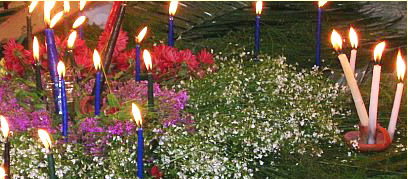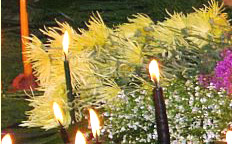|
About us:
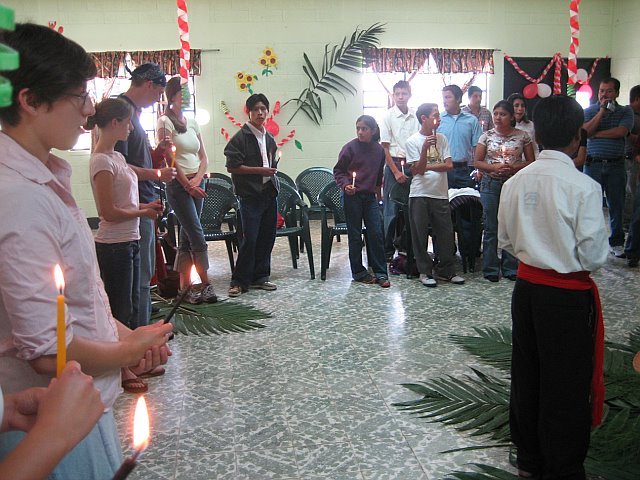 The University of Washington Guatemala Project is a vehicle for youth empowerment. Each year students under the leadership of Professor Angelina Godoy travel to Guatemala to study human rights under the University of Washington seminar "The Shifting Terrain of Human Rights in Guatemala". The seminar aims to introduce students to human rights as they are experienced on the ground in this complex postwar setting. Initially developed by the students of Professor Godoy’s 2005 class, the University of Washington Guatemala Project now encompasses the 2006 students and other members of the UW community and is a vital component of the ongoing class. In this endeavor, UW students have the opportunity to participate in a development project created by their peers, and to try their hand in its administration and further development. Its leadership is comprised of 'alumni' from this class, many of whom have returned to Guatemala on subsequent visits to deepen their relationships with our partner communities. The project also fosters the ongoing engagement of students who have returned from the seminar in Guatemala and want to remain connected to commitments made during that class.
The University of Washington Guatemala Project is a vehicle for youth empowerment. Each year students under the leadership of Professor Angelina Godoy travel to Guatemala to study human rights under the University of Washington seminar "The Shifting Terrain of Human Rights in Guatemala". The seminar aims to introduce students to human rights as they are experienced on the ground in this complex postwar setting. Initially developed by the students of Professor Godoy’s 2005 class, the University of Washington Guatemala Project now encompasses the 2006 students and other members of the UW community and is a vital component of the ongoing class. In this endeavor, UW students have the opportunity to participate in a development project created by their peers, and to try their hand in its administration and further development. Its leadership is comprised of 'alumni' from this class, many of whom have returned to Guatemala on subsequent visits to deepen their relationships with our partner communities. The project also fosters the ongoing engagement of students who have returned from the seminar in Guatemala and want to remain connected to commitments made during that class.
While the project aims to provide scholarships and leadership training for young leaders in Guatemala's coffee communities, it focuses just as much on empowering UW students to seek solutions to endemic problems of global poverty. We have learned, through our experience with this program, that young people are capable of changing the world. We believe the program has given back as much to us, as UW students, as it has to students in Guatemala. In this way, seeking to provide for others' education has deepened our own.
Since 2005, Professor Angelina Snodgrass Godoy has guided UW undergraduates to Guatemala to study past and present human rights issues as part of an intensive month-long seminar. The class seeks to immerse students in the realities of human rights as they are experienced in post-genocidal Guatemala. Throughout the course, students have a chance to acquaint themselves with the many issues scholars, policy makers and human rights advocates face when addressing past atrocities while adapting to new challenges. They meet with some of the country’s most prominent human rights leaders, including survivors, attorneys, and many others fighting to improve living conditions for the country's impoverished majority. The class culminates with a weeklong visit to the heart of Guatemala's coffee country, in the department of San Marcos.
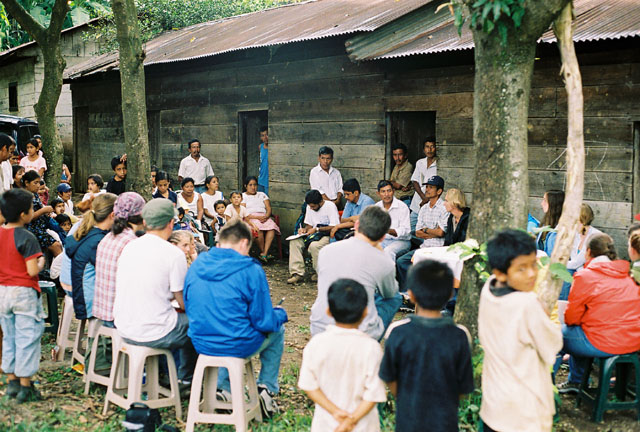 In San Marcos, we collaborate with the Movimiento de Trabajadores Campesinos (Movement of Peasant Workers), a NGO which works extensively with people on coffee plantations. Thanks to this collaboration, students have had the opportunity to visit several coffee plantations engaged in labor disputes since the 2001 coffee crash. These workers do not own their own land; many have lived on the plantations for generations, and have few, if any, alternatives to picking coffee. Entirely at the mercy of the plantation owners, basic human rights are denied daily and the workers suffer extensive abuse. In 2005, students visited a plantation called Finca San Jeronimo; in 2006, students visited Finca Las Delicias, and returned to San Jeronimo. These experiences demonstrated to us the realities of exploitation in coffee production, and the importance of supporting alternatives to the current system. Moved by these experiences, students returning from Guatemala in 2005 formed a campus group with the goal of raising money to provide scholarships to enable the children of Finca San Jeronimo to enroll in school for the 2006 school year. In three months of intensive fundraising, the group met and exceeded its financial goal.
In San Marcos, we collaborate with the Movimiento de Trabajadores Campesinos (Movement of Peasant Workers), a NGO which works extensively with people on coffee plantations. Thanks to this collaboration, students have had the opportunity to visit several coffee plantations engaged in labor disputes since the 2001 coffee crash. These workers do not own their own land; many have lived on the plantations for generations, and have few, if any, alternatives to picking coffee. Entirely at the mercy of the plantation owners, basic human rights are denied daily and the workers suffer extensive abuse. In 2005, students visited a plantation called Finca San Jeronimo; in 2006, students visited Finca Las Delicias, and returned to San Jeronimo. These experiences demonstrated to us the realities of exploitation in coffee production, and the importance of supporting alternatives to the current system. Moved by these experiences, students returning from Guatemala in 2005 formed a campus group with the goal of raising money to provide scholarships to enable the children of Finca San Jeronimo to enroll in school for the 2006 school year. In three months of intensive fundraising, the group met and exceeded its financial goal.
This led to further discussion among the UW students and with our partners in the MTC about the importance of seeking longer-term solutions and providing sustainable alternatives for young people on coffee plantations in the region. Rather than helping a single community, we committed ourselves to creating a partnership that would have a broad impact in the coffee communities throughout San Marcos. In partnership with the MTC and in communication with the young people of the coffee communities, we have crafted a new project that enables some of the region's emergent youth leaders to not only continue with their formal education and youth leadership, but carry out small-scale development projects of their own design within their communities.
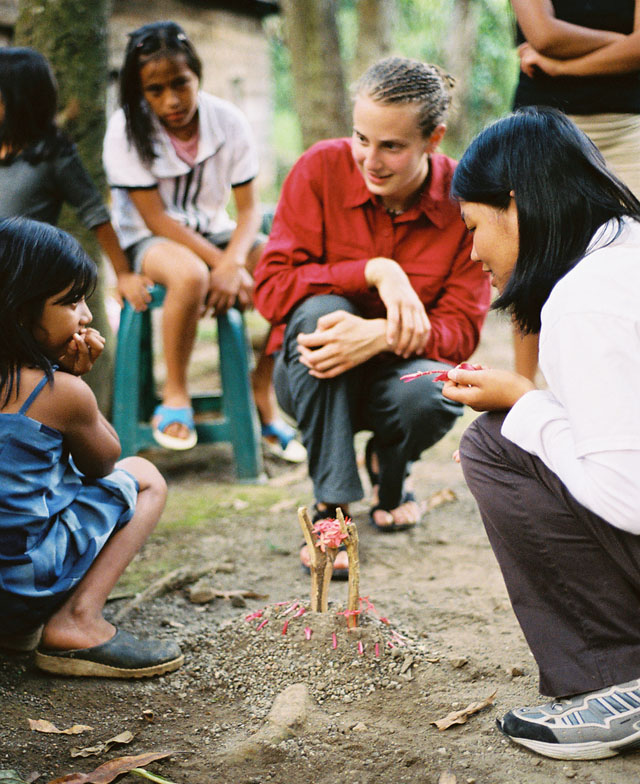 Through collective decision-making and communication with the MTC, we aim to promote young activists who are trying to create change in their struggling communities rather than continuing a cycle of northern migration and community disintegration. We are working to†strengthen this partnership between the youth in Guatemala and the youth at the University of Washington, and to deepen our ties of solidarity, friendship, and respect.
Through collective decision-making and communication with the MTC, we aim to promote young activists who are trying to create change in their struggling communities rather than continuing a cycle of northern migration and community disintegration. We are working to†strengthen this partnership between the youth in Guatemala and the youth at the University of Washington, and to deepen our ties of solidarity, friendship, and respect.
Toward that end, in 2006 a new class of UW students, accompanied by 4 members of the 2005 class, returned to San Marcos to meet with young leaders from the coffee communities and learn more about the opportunities and challenges they face. We invite you to join with us and with the young people of San Marcos in the joint participation of coffee producers and consumers in constructing a cycle of hope and the dream of a brighter future.
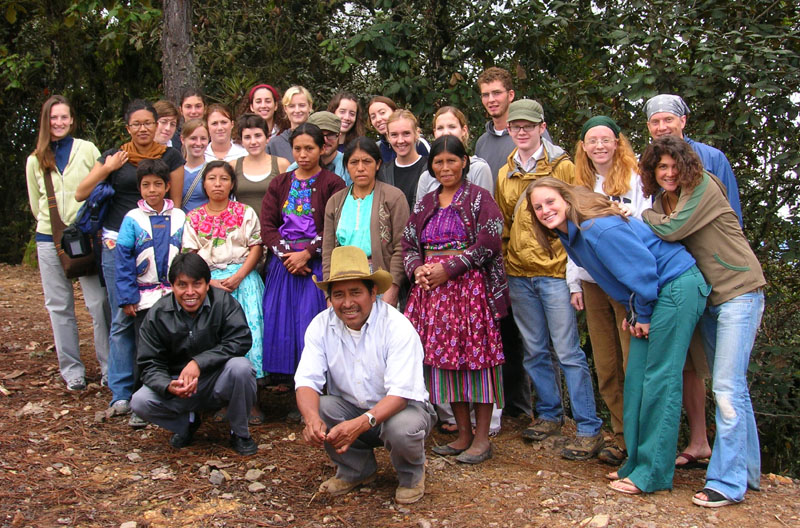 UW students from the 2006 Exploration Seminar met with many local community members and activists in San Marcos, Guatemala. (Photo: Mynor Melgar) Click to enlarge.
UW students from the 2006 Exploration Seminar met with many local community members and activists in San Marcos, Guatemala. (Photo: Mynor Melgar) Click to enlarge.
|
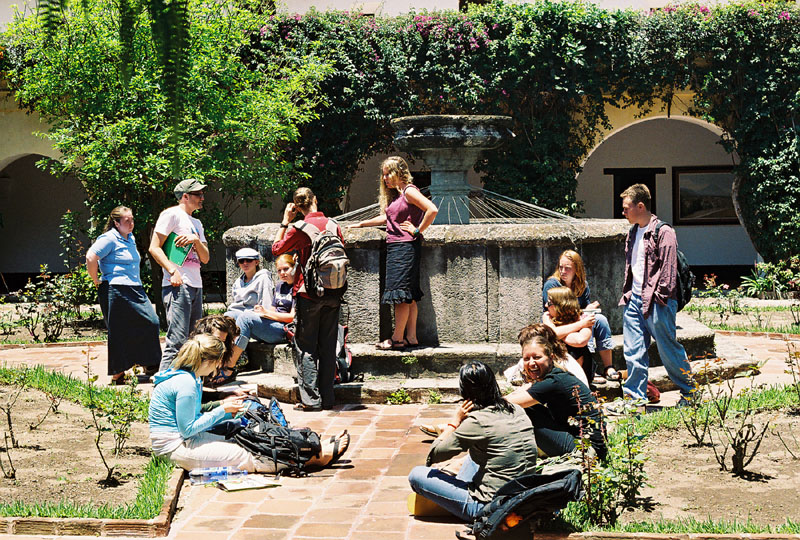 In 2005, students take a break from classes in Antigua, Guatemala. (Photo: Phil Neff) Click to enlarge.
In 2005, students take a break from classes in Antigua, Guatemala. (Photo: Phil Neff) Click to enlarge.
|
[ Home | Project Statement | About Us | Auction | How to Help | Español ]
|
